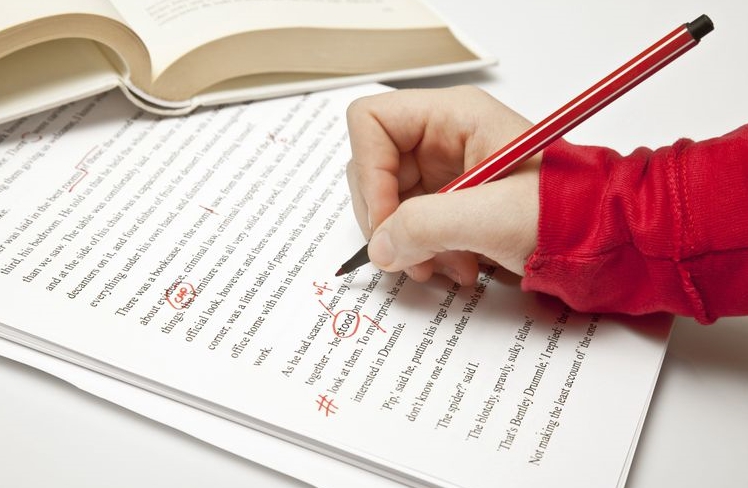Writing in academic and professional circles is one of the most common tasks. According to the Teach Thought, an average fourth-grader spends at least three hours per week on writing assignments.
Students deal with such tasks on a regular basis. And even more – they also have to support their knowledge with written papers as an evidence of solid knowledge and competency in a certain area.
However, even though writing is very common as a task at college, students still feel intimidated by an idea of having to compose a decent piece of information within the shortest terms. And it is not surprising, given that four out of five students are not good at writing, according to the same source. And this is combined with the fact that slightly fewer than 50% of all students believe that their writing improved in college.
Not only this is caused by their lack of confidence in the clear understanding of the subject, but also by the time that is always an issue for young people.
So, here we come to a question of how one can write a decent thesis within the tight timeframe and not go crazy. Check out our tips that will guide you through the process step by step.
How to compose a great thesis within the shortest time
1. Start early.
Time can be your best friend or your worst enemy. In case you start early, you can take all the time you need and create a decent piece of information. However, if you run out of time, you will end up rushing into the paper and missing many important points.
So, plan your writing ahead of time. They say that if you d everything right, you will only need around a month to complete the paper.
To help you keep track of your time, make sure to start with a list of things you need to do for your thesis creation. You can spread the tasks across weeks and then split them all into smaller to-do lists. Each of the tasks must have a clear deadline so that you can keep track of how well you are doing and whether you are still on the right track.
You must create such lists ahead of time and update them as long as some task is completed. Besides, you can also reward yourself for a good work in case the task is done properly and timely.
2. Choose an adviser that cares.
You must choose an adviser that will be more than happy to help you. Unfortunately, you will see that there are many of them that seem to be quite indifferent to how well you are doing. So, pick someone you feel confident with and see if this tutor can be your thesis adviser.
He or she will be able to set clear deadlines, help you evaluate the paper on each stage and recommend literature to study when looking for information. They have more experience in the subject, so undoubtedly, they can help you do much better than you would do without their assistance.
Do not hesitate to ask for help. You should not be worried about daily appointments with them, and definitely do no worry about being a pain in the neck: it is their responsibility to help you (and frankly, in most cases, they find it interesting, especially if teaching is their calling).
3. Stick to the standard structure.
Do not try to re-invent the wheel. There is a standard structure you need to stick to, so just follow the instructions.
The main goal behind any structure is to present your ideas in a clear and concise manner. So, just go over the structure step by step.
An average graduate thesis consists of several chapters:
- Title page;
- Abstract (not longer than 350 words);
- Lay summary (not longer than 150 words);
- Preface;
- Table of contents;
- List of tables;
- List of figures;
- List of illustrations;
- List of symbols;
- Glossary;
- Acknowledgement;
- Document body that includes an introduction, research chapters, and a conclusion;
- Bibliography;
- Appendices.
If you follow this structure, you will end up having a clear and understandable paper in the end. However, beware that every school might have its own specifications, so a list of the chapter might vary. Remember to talk this through with your adviser to make sure you are doing everything right.
4. Pay attention to the bibliography.
We know many examples of how students would write a paper before the deadline, but then still miss it due to how much time bibliography creation took them. Thus, they will find a good literature review sample and use it to compose a paper faster, but then get stuck at bibliography.
Do not fall into this trap, and take proper notes of all the resources you are using as you go. Otherwise, you will spend ages searching for the places you took a quote from.
So, if you are using a printed source, then mention it in the Bibliography by listing all of these points as it is stated by the Science Buddies: a name of the author, date, place and a company that published the book, the volume (in case it is a magazine or encyclopedia) and a page number.
Should you have used some online resource, then list it this way – an author or editors names, title of the page you found it on, company that published it, URL, and the date you found it there.
This will save you some hassle: just use our guide – and you are good to go!
5. Check the paper for plagiarism.
Schools do not let any plagiarized content slip into the papers. That is why your supervisor will check your paper for plagiarism every time you hand in a piece of your thesis.
To save you some time here, we recommend you using plagiarism checkers yourself.
There are many great ones available for free online. Among them are Small SEO Tools, Quetext, PlagScan, etc.
All you need to do there is copy your text, insert it into a relevant field on the website and wait for the program to analyze all the information with a click of a button.
6. Use technologies.
Finally, save time by using technologies (which were invented to save our time in the first place).
For example, you can use special software that will block any distractions on your computer while you writing (including SelfControl, LeechBlock, FocusON, Freedom, etc).
Moreover, you can create your to-do lists using special software that not only makes listings easier but also kind of fun. Among the ones we would recommend you using are Google Keep, Remember the Milk, Habitica, Todoist, or Wunderlist. They are all loved and used by many, so join the community of super-organized people.
Apart from that you can check grammar and proofread your paper with the cutting-edge software like GrammarCheck, Grammarly, Language Tool, Online SpellCheck, etc. They will save your eyes from having to read the same text over and over again and will keep you right on track even if your time is very limited.
As you see composing a graduate paper is not as complicated as you thought it might be. There are tones of ways to make it better. And even if you lack confidence that you can deal with the task as easily as it sounds, remember that many students have gone through this way, and you can do it too!
By the way, if you have any other great ways in minds that help you save time when writing a graduate paper, do not hesitate to share that wisdom with us. Sharing is caring, we believe. So, hit the comments button – and let us know!





